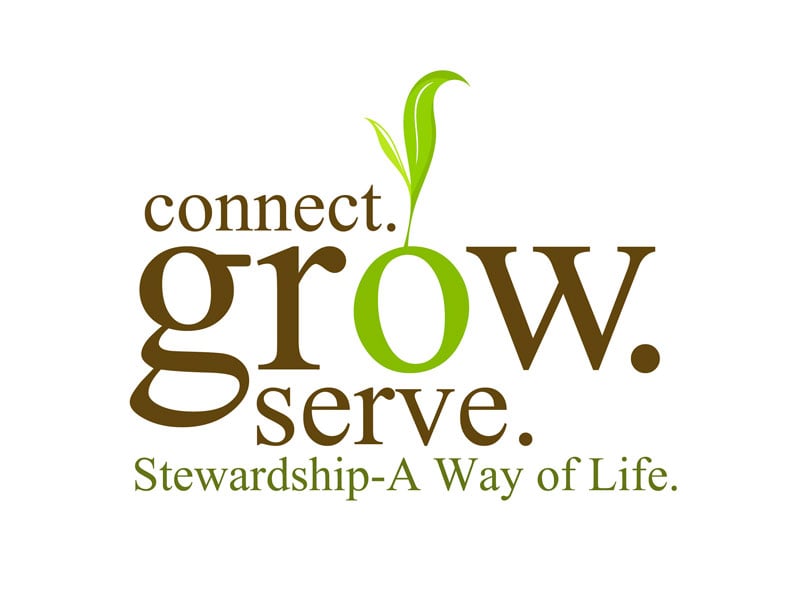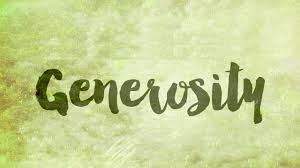Stewardship

Time, Money and Body Conundrum
We have limited resources and God calls us to be good Stewards. Stewardship is management of what God has given or entrusted to us. Now, this may seem obvious, but it is key – A steward is someone who has been charged to look after something that does not belong to him.
In Ephesians 5v15-16 we read – “Be very careful then, how you live – not as unwise but as wise, making the most of every opportunity, because the days are evil.”
In Matthew 25v14-30 we read the parable of the three Stewards who were entrusted to look after their master’s wealth.
In 1 Corinthians 6v19-20 we read – “Do you not know that your bodies are temples of the Holy Spirit, who is in you, whom you have received from God? You are not your own; you were bought at a price. Therefore honour God with your bodies.”
In order to understand why the management of Time, Money and Body is so important to me I need to go back to my childhood. One of God’s Ten Commandments (Exodus 20v12) is “Honour your Farther and Mother”. Jesus himself reminded us of this as did Paul. So, whist not wishing to dishonour my parents as their intent was always good, they did not model good Stewardship of Time, Money nor Body.
Time – Their life was focussed on work and from a very early age I was left to fend for myself as they left early for work and returned home late at night. From a very early age I would regularly have to:
- Sort out my own breakfast and lunch,
- Find my way to school and home again from age 6,
- Make my bed and generally clean the house (useful skills to have learnt)
Money – They moved from one house to another buying and selling regularly which is an expensive and time-consuming exercise (unless you are in the house flipping business). My parents got divorced after 20 or so years of marriage. My mom did go on to then take charge of her finances and has been able to provide for a modest retirement. My farther unfortunately continued a cycle of poor money management choices that included gambling and drinking, resulting in having to be bailed out time and again.
Body – With being so busy, they had very little time to look after their physical wellbeing. This included doing very little exercise (tired after a long week at work) and not eating healthy meals. In later life they have both suffered with various aliments some of which at least could have been prevented if they had been better Stewards of their bodies. My farther sadly passed away at a relatively young age as a result of the excesses of his life. I was left with one of two options. Follow the path my parents modelled or follow a very different path. As I grew in faith after accepting Jesus’s call whilst at university, and with the help of my wonderfully wise wife, I have grown increasingly intentional in being a better steward of the Time, Money and Body God has given me. I absolutely have a long way to go and in particular, my diet should include more fruit. BC (Before Christ) I ate bread and meat. My vegetables were potatoes or rice and I didn’t eat any fruit (well maybe an orange juice).
Managing our Time
God has given us all 24 hours each day to manage. I thought I managed my time well. I took time for work, relationships, looking after my body and even allowed eight hours for sleep. Sounds okay? NO! What is missing? Notice it is God who gives us time. How much time do we then give to him? I have become increasingly aware of the importance in giving time to read the word and pray in order to develop a closer relationship with God. Jesus himself would often withdraw to spend time alone with God. Who knew, spending more time with God means I get to hear from Him more often. Whilst not going into it here as it’s a topic in itself, this extends to prayer and fasting.
In Ephesians 5v15-16 we read, “Be very careful then, how you live – not as unwise but as wise, making the most of every opportunity, because the days are evil.”
There are two Greek words that refer to time – Chronos and Kairos. Chronos is the time on your watch. Kairos is an opportunity or an occasion. The concept of time in Ephesians is Kairos time.
Chronos – We tend to think in Chronos time, we have 24 hours in our day, seven days in our week. If we are diligent we might compile a list of things to do and allocate time to do them. Being conscious of the minutes and hours is a good thing – our time on earth is brief and we want to be good stewards of the time God has allotted to us on earth. In Ephesians 5, Paul is exhorting us to take advantage of the opportune times (Kairos).
Kairos – Kairos time requires us to realize that every minute does not hold the same worth. Ten minutes spent praying with a friend is more valuable than ten minutes spent updating my social feed. We need to change our mindset of what effectiveness is. Christian effectiveness is not necessarily cramming as much in our day.
A number of years ago I experienced a period in which I mismanaged my time. Work, as happens too many of us, was consuming an increasing amount of my time and focus (early morning starts and working on weekends). During this time my wife had to be rushed to the hospital emergency room with a very large DVT clot in her leg and multiple clots on the lungs. I went to see her when she was admitted, but after the initial test were completed and treatment commenced, I went back to work. I prioritised work over my wife even when she had nearly died. Not proud of myself and this was a clear case of not recognising the worth of a Kairos moment. Don’t let your conscientiousness with Chronos leave no opportunity for Kairos.
John 10v27 mentions, “My sheep listen to my voice; I know them, and they follow me”. Unless we spend time with Jesus, how will we know his voice? If we don’t know his voice, how can we follow him? Jesus has sent us the Holy Spirit as the helper. As we spend time in the word and prayer, if we listen, the Holy Spirit reveals God’s purpose and plan.
Three years ago I received a clear word of what his purpose and plan is for me. In as much as I have been slowly fulfilling this purpose, the more time I spend with God, the clearer His word is and it has not changed.
In the time God has allotted to us, we are expected to be good managers/stewards of this time. We are expected to invest the talents we have on activities with an eternal benefit. I’m not saying, pack it all in and become a full time missionary or pastor. We seem to be able to squeeze in one more hour of TV, one more hour reading the news or our social media feeds. Having spent time with God and hearing his voice, what is He calling you to do? Where is he calling you to follow?
In our rushed society, whenever we ask how someone is, the catch cry is “busy”. It is often easier to open our wallets and give money to solve a need/problem than to make time to pray or roll-up our sleeves and invest some of our time. Why is it so hard to tithe our time spent with God?
Money
In Matthew 6v21 it says, “For where your treasure is, there your heart will be also”. It is a simple exercise to track what you spend your money on over the course of a month. How much do you spend on accommodation, food, entertainment, clothing or travel? That daily cup of coffee. Then check to see how much you give in donations to the church and elsewhere. This will highlight at a glance where our values, treasure and heart really are.
So, here is an important question. How much do you think God should pay you as His money manager? After all, it is God’s money and Him who pays us – someone else (your employer) might sign the cheque.
In Matthew 25v14-30 we read the parable of the three stewards who were intrusted to look after their masters wealth whilst he went away.
The people who were charged to look after the man’s money while he was away are stewards. A steward is someone who is charged with looking after something on behalf of someone else. In this story, the master entrusts his servants to look after various amounts of money for a period of time while he is away.
Now, this may seem obvious, but it is key – A steward is someone who has been charged to look after something that does not belong to him.
In the story in v15, the master gives out money to three servants “each according to his ability,” then he leaves. The first two servants invest that which was entrusted to them and make a good return. In v16-17, “The man who had received five bags of gold went at once and put his money to work and gained five bags more. So also, the one with two bags of gold gained two more.” The servant who had been entrusted with one talent hoarded it. In v18, “But the man who had received one bag went off, dug a hole in the ground and hid his master’s money.” The servant who buried the talent had no business doing so. It wasn’t his money. He was supposed to invest what his master had entrusted to him.
Matt 25v 19-21, “After a long time the master of those servants returned and settled accounts with them. The man who had received five bags of gold brought the other five. ‘Master,’ he said, ‘you entrusted me with five bags of gold. See, I have gained five more.’ “His master replied, ‘Well done, good and faithful servant! You have been faithful with a few things; I will put you in charge of many things. Come and share your master’s happiness!”
When the Master returns to settle accounts, none of us will feel that any bit of the resources we invested for eternity was not worth it. In this parable, those who were faithful with a little are given much more. Jesus makes this principle explicit – faithfulness in this life will be rewarded in the next. Investing God’s resources wisely now is not just good investing for God, it’s a good investment for you.
Here, then, is the heart of Christian stewardship. It doesn’t belong to you, but you are responsible to make good use of it for the Master.
The question again is – How much do you think God should pay you as His money manager? Have you been faithful with a little so that he can trust you with more?
Jesus expects us as individuals and as a community to take everything we have and use it for the Kingdom of God and not the Kingdom of this world. We need to ask ourselves these hard questions when it comes to stewardship of money: Where are our priorities? The Kingdom of God or our own comfort? How much do we trust God when it comes to our finances? How much do we trust Him to provide for us and take care of us (read Matthew 6:25-33)? How are we giving? Do we give to get, (get attention, get approval, get accolades, get God in our debt)? Are we a community who seeks to follow Jesus, living our stewardship of money in the way that Jesus would want us to? Are we using our communal “wealth” to prop up the church / the world, or are we using our communal “wealth” to further the Kingdom of God?
Body and mind
You have probably heard a message around being a good steward of your money. You might even have heard about sound custodianship of your time. We seldom talk about the importance of stewardship of our body and mind. What does this mean anyway?
In 1 Corinthians 6v19-20 we read – “Do you not know that your bodies are temples of the Holy Spirit, who is in you, whom you have received from God? You are not your own; you were bought at a price. Therefore honour God with your bodies.”
Looking at the context of this passage, Paul is referring to the prevalence of sexual immorality present in Corinth. In most parts of the world today, sexual immorality continues to be prevalent. So, how are we told to live? How do we treat our body in the right way, use it for the right purposes?
i. In the first instance we need to recognise that our body belongs to God. It is His, not ours. He created our body and expects us to use it the way He intends it to be used. In 1 Corinthians 6v13 we read, “The body, however, is not meant for sexual immorality but for the Lord, and the Lord for the body”. We like to think that our body is ours and we can do with it what we want. God tells us we are wrong if we think this. It is not our body, we did not create it. He made it and has loaned it to us while we live on earth. He expects us to take care of it.
So we are not the owner of our body, we are the custodian of it. The word for custodian in the Bible is steward. Taking care of our body is an issue of spiritual stewardship. God tells us that one day we will have to give an account for how well we looked after everything He gave to us, including our body. We will have to stand before God and answer the question, “What did you do with what I gave you?”
ii. Secondly, Jesus paid for our body when He died on the cross. In 1 Corinthians 6v19 we read, “…you were bought at a price. Therefore honour God with your bodies”. We may own a beautiful house and think it is worth a lot of money. In reality it is only worth what someone will pay. How much are you worth? If we look at the cross we will see how valuable we are – priceless. If we are worth dying for, shouldn’t we take great care of ourselves? If our bodies belong to God and Jesus was prepared to die for us, the least we can do is to take great care of His asset.
iii. The third point is that God’s Spirit lives in our body. When we say yes to God, accepting by faith what Jesus did for us and trusting His grace and forgiveness to save us, then God puts His Spirit inside us as a guarantee of our salvation. In 1 Corinthians 6v19-20 we read – “Do you not know that your bodies are temples of the Holy Spirit, who is in you, whom you have received from God?”
When God puts His Spirit inside us, our body becomes a temple of God, a home for His love. So, if we saw someone vandalizing or damaging a temple dedicated to God, wouldn’t we consider that a crime? Of course! Yet we abuse and vandalize God’s temple, our body, when we deprive it of rest and sleep, overeat, put too much stress on it, and fail to take care of it.
On a practical level it is worth looking at 1 Timothy 4v8 which reads, “For physical training is of some value, but godliness has value for all things, holding promise for both the present life and the life to come.”
Notice what Paul is saying here, physical training is of some value. It has importance for this life. Just ask a doctor how important physical exercise is. I believe a huge part of honouring God with our body revolves around physical training or exercise. When we get exercise we become physically fit and able to work harder and enjoy more of life. When we train our bodies, I believe it can affect our spiritual lives.
I go running with my wife every other day. There is an added benefit as we use that time to talk to God and to each other. I have noticed a difference, not only physically in my own body (energy level, weight, etc…). I’ve noticed spiritual growth from running as well. So another way to honour God and be a good steward of the body that he has given to us is to get regular physical exercise. Now I recognise that it is also possible to make exercise a god. In line with stewardship of our time, we should ensure that the time taken to look after our bodies is in sync with the time we devote to Prayer, reading the word, family time, work time etc.
What do you do to get physical exercise? How can that help your growth and development as a person and in your spiritual life? There are a lot of other ways that we could cover about being good custodians of the body that he has given to us. We could talk about sleep, food, moderation, drugs and alcohol, and a few other things related to our bodies. Let’s take this opportunity to think about what it means for us to be a good custodians of our bodies. Let’s think about what areas of stewarding our bodies we struggle with the most. Let’s meditate on what God might be saying to us about how he wants us to steward this gift, this temple, which he has loaned to us.
This life is preparation for our next life, which will last forever in eternity. God is testing us on earth to see what He can trust us with in eternity. He is watching how we use your time, our money, and yes, even our body.




 Relationship between Generosity and Stewardship
Relationship between Generosity and Stewardship